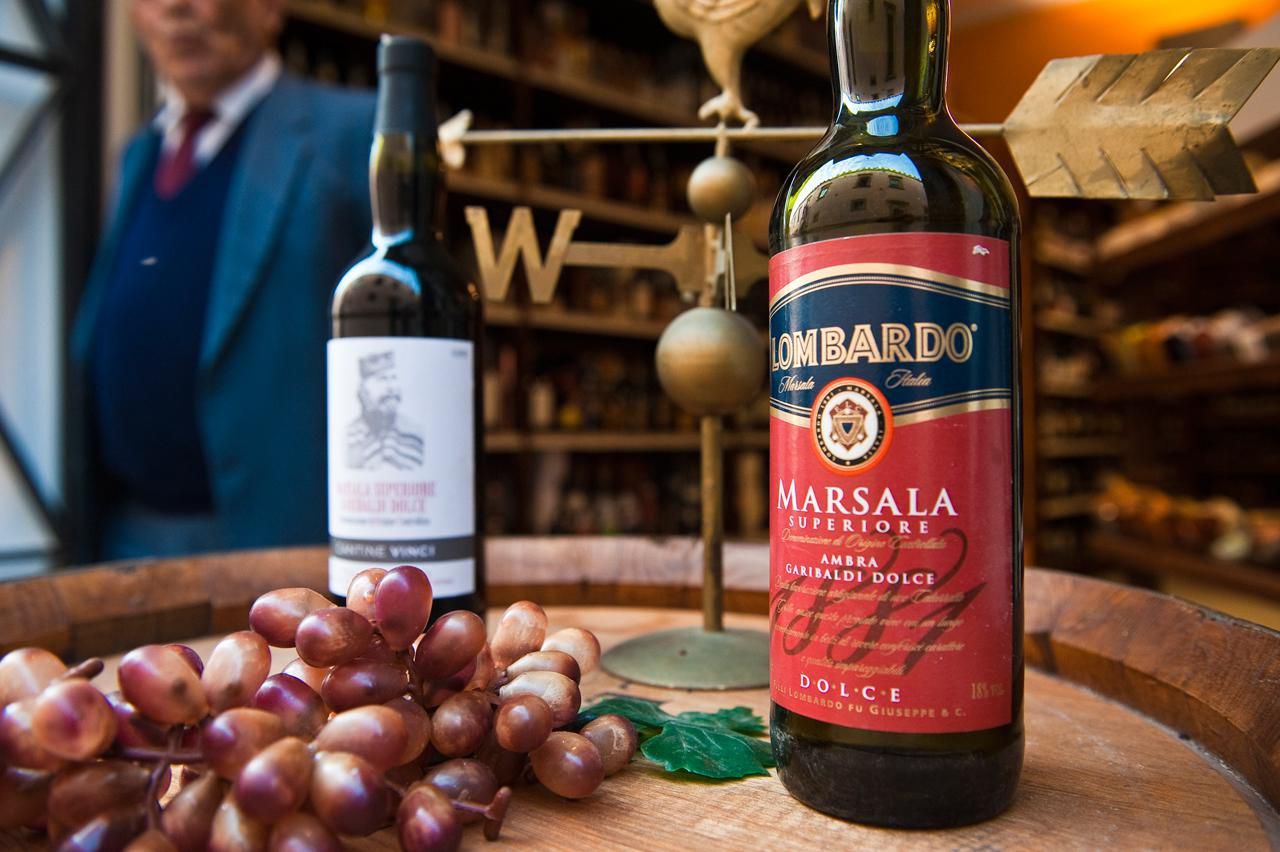

Articles
How To Store Marsala Wine
Modified: February 19, 2024
Learn the proper techniques and tips for storing Marsala wine with this informative article. Discover how to preserve the flavor and quality of your favorite fortified wine.
(Many of the links in this article redirect to a specific reviewed product. Your purchase of these products through affiliate links helps to generate commission for Storables.com, at no extra cost. Learn more)
Introduction
Welcome to the wonderful world of Marsala wine! Whether you’re a seasoned wine enthusiast or just starting to explore the vast array of flavors the world of wine has to offer, Marsala wine is sure to captivate your taste buds and leave you longing for more. In this article, we will delve into the art of storing Marsala wine, ensuring that you can enjoy its exquisite flavors at their best.
Marsala wine originates from the province of Trapani, located in the stunning Italian island of Sicily. This unique fortified wine is made from a blend of local grape varieties, including Grillo, Catarratto, and Inzolia. The wine’s distinctive character and nuanced flavors have made it a beloved choice for both cooking and sipping pleasure.
Before we dive into the specifics of storing Marsala wine, let’s take a moment to understand its characteristics. Marsala wine comes in a variety of styles, ranging from dry to sweet, depending on the fermentation process and the addition of grape must. It is aged in oak barrels, which imparts a rich amber color and complex flavors of dried fruits, caramel, and spices, making it a versatile and delightful addition to any wine collection.
When it comes to storing Marsala wine, there are several important factors to consider. The storage conditions play a crucial role in preserving the wine’s quality and allowing it to age gracefully. From choosing the right storage method to monitoring and maintaining the wine’s temperature, humidity, and light exposure, every detail matters in ensuring the longevity and enjoyment of your Marsala wine.
So, whether you’ve just purchased a bottle of Marsala wine or inherited a cherished collection, stay tuned as we explore the best practices for storing this exquisite Italian wine. By following these tips, you can ensure that every sip of Marsala wine is a delightful experience, filled with the flavors and aromas that this extraordinary wine has to offer.
Key Takeaways:
- Proper storage of Marsala wine is crucial for preserving its unique flavors. Factors such as temperature, humidity, and light exposure play a vital role in maintaining the quality and integrity of this exquisite Italian wine.
- Monitoring and maintaining the quality of Marsala wine collection is essential for ensuring its graceful aging process. Regular tastings, detailed notes, and proper storage conditions contribute to a delightful wine-drinking experience.
Read more: How To Store Opened Marsala Wine
Understanding Marsala Wine
To truly appreciate the art of storing Marsala wine, it’s essential to understand its unique characteristics and the winemaking process that gives it its distinct flavor profile. Marsala wine is produced in the region of Sicily, Italy, and has a long and storied history.
Marsala wine is made from a blend of indigenous white grape varieties, such as Grillo, Catarratto, and Inzolia. These grapes are grown in the vineyards surrounding the city of Marsala, located in the western part of Sicily. The warm Mediterranean climate and the characteristic red soil of the region contribute to the exceptional quality of the grapes.
What sets Marsala wine apart from other wines is its unique production method. After the grapes are harvested, they are pressed and fermented. The fermentation process is halted early by the addition of a fine grape spirit called “mistella.” This addition stops the fermentation and results in a sweeter wine with a higher alcohol content.
The next step in the production of Marsala wine is the aging process. The young wine is transferred to oak barrels, where it undergoes a lengthy aging period. The duration of aging can vary, ranging from a minimum of one year for basic Marsala wines, up to ten or more years for the highest quality and most prestigious varieties.
During the aging process, the wine interacts with the wood of the barrels, gaining flavors and aromas that make Marsala wine truly unique. The oak imparts a richness and depth to the wine, with notes of dried fruits, caramel, vanilla, and spices developing over time.
Marsala wines are classified according to their sweetness levels and aging periods. The classifications include Fine, Superiore, Superiore Riserva, Vergine, and Vergine Stravecchio. Each classification represents a different combination of sweetness and aging, offering a diverse range of flavors and styles.
From the crisp and dry varieties, perfect for drinking as an aperitif or accompanying savory dishes, to the lusciously sweet options that pair seamlessly with desserts, Marsala wine offers something to suit every palate and occasion.
Now that you have a deeper understanding of Marsala wine’s production process and exceptional flavors, it’s time to explore the best practices for storing this delightful wine, ensuring its longevity and preserving its unique characteristics.
Factors to Consider Before Storing Marsala Wine
Before you embark on the journey of storing your precious Marsala wine, it’s important to consider a few key factors that can greatly impact its quality and longevity. Taking these factors into account will help ensure that you create the optimal storage conditions for your Marsala wine collection.
1. Temperature: Temperature plays a crucial role in preserving the flavors and aromas of Marsala wine. The ideal temperature for storing Marsala wine is between 50°F (10°C) and 59°F (15°C). It’s important to avoid drastic temperature fluctuations, as this can negatively impact the wine’s taste and aging process. Extreme heat can cause the wine to expand and contract, potentially leading to leaks or spoilage. Therefore, it’s best to store Marsala wine in a consistent and cool environment.
2. Humidity: Humidity levels are equally important when it comes to storing Marsala wine. The recommended humidity range for wine storage is between 60% and 70%. This level of humidity helps maintain the integrity of the cork and prevents it from drying out. If the cork dries out, air can get into the bottle, causing oxidation and spoilage of the wine. Investing in a humidity control system or storage unit can help you maintain the ideal humidity levels for your Marsala wine collection.
3. Light Exposure: Light, especially sunlight, can have a detrimental effect on Marsala wine. Ultraviolet rays can degrade the wine, causing it to develop off-flavors and lose its vibrant color. It’s best to store Marsala wine in a dark or dimly lit area to protect it from light exposure. If you don’t have a dedicated wine cellar or storage room, consider using opaque wine bags or storing the bottles in wooden cases to shield them from direct light.
4. Bottle Orientation: The position in which you store your Marsala wine bottles can impact their aging process and the quality of the wine. For wines sealed with corks, storing them horizontally keeps the cork moist and prevents it from drying out. However, Marsala wine bottles sealed with screw caps or synthetic corks can be stored upright if preferred. It’s important to note the type of closure when determining the best storage position for your Marsala wine.
5. Vibration and Movement: Excessive vibration and movement can disturb the sediments in Marsala wine and affect its aging process. It’s best to avoid storing the wine in areas with heavy vibrations or constant movement. Vibration can disturb the wine’s delicate balance, potentially leading to a loss of flavor and complexity. Ideally, choose a stable and quiet location for your Marsala wine storage to ensure its optimal aging conditions.
By considering these important factors – temperature, humidity, light exposure, bottle orientation, and vibration – you can create the ideal storage conditions for your Marsala wine. These factors will help preserve the wine’s quality, allowing it to age gracefully and fully develop its unique flavors and aromas.
Now that you understand the key factors to consider before storing Marsala wine, let’s explore the various storage methods available, enabling you to choose the one that suits your needs and ensures the best possible preservation of your prized bottles.
Choosing the Right Storage Method
When it comes to storing Marsala wine, choosing the right storage method is crucial to ensure optimal aging and preservation of its unique flavors. There are several options available, each with its own benefits and considerations. Let’s explore a few popular storage methods for Marsala wine:
1. Wine Cellar: A dedicated wine cellar is often considered the ideal storage solution for Marsala wine enthusiasts. Wine cellars offer controlled conditions, including temperature, humidity, and ventilation, which are vital for maintaining the wine’s quality. A wine cellar provides a consistent temperature range, usually between 50°F (10°C) and 59°F (15°C), and the desired humidity level of 60% to 70%. The storage racks or shelves in a wine cellar also allow for proper bottle orientation. If you have a sizable collection and are serious about long-term wine storage, investing in a wine cellar is a wise choice.
2. Wine Refrigerator: If you don’t have the space or resources for a dedicated wine cellar, a wine refrigerator, also known as a wine cooler, can be a suitable alternative. Wine refrigerators are designed to provide the ideal temperature and humidity conditions for wine storage. These refrigerators typically offer adjustable temperature settings, allowing you to set the perfect temperature for your Marsala wine collection. Additionally, they provide insulation and UV protection, safeguarding the wine from light exposure. However, wine refrigerators may have limited capacity, so consider the size of your collection before purchasing one.
3. Wine Storage Cabinets: Wine storage cabinets are another option for storing Marsala wine. These cabinets are equipped with temperature and humidity control features, similar to a wine refrigerator, but offer a more furniture-like appearance. Wine storage cabinets come in various sizes and styles, allowing you to find a cabinet that suits your aesthetic preferences and storage needs. Keep in mind that these cabinets require proper ventilation to ensure the ideal storage conditions for your Marsala wine.
4. Wine Lockers: If you prefer an off-site storage option, wine lockers can be a convenient solution. Wine lockers are climate-controlled storage facilities specifically designed for wine collections. They offer the necessary temperature, humidity, and security features to ensure the proper aging of Marsala wine. Wine lockers are also a popular choice for wine enthusiasts who want to access their collection easily and have a space to showcase their bottles.
5. DIY Options: If you’re on a budget or have limited storage needs, you can consider DIY options for storing your Marsala wine. This can include repurposing a cool and dark area of your home, such as a basement or closet, as a makeshift wine storage space. Just ensure that the temperature, humidity, and light exposure are controlled to the best of your ability.
When choosing the right storage method for your Marsala wine, consider factors such as the size of your collection, budget, available space, and long-term storage goals. Regardless of the storage method you choose, remember to maintain consistent temperature and humidity levels, minimize light exposure, and provide a stable environment for your Marsala wine to age gracefully.
Now that you have an understanding of the various storage methods, let’s explore some tips for properly storing Marsala wine to ensure the best possible conditions for your collection.
Storing Marsala Wine in a Wine Cellar
A wine cellar is often considered the ultimate storage solution for Marsala wine enthusiasts. If you have the luxury of a dedicated wine cellar, you can create the perfect conditions to preserve the quality and integrity of your Marsala wine collection. Here are some essential tips for storing Marsala wine in a wine cellar:
Temperature Control: Maintaining a consistent temperature is vital for storing Marsala wine properly. The ideal temperature range for Marsala wine storage is between 50°F (10°C) and 59°F (15°C). This temperature range allows the wine to age gracefully and develop complex flavors. Invest in a reliable thermostat or temperature control system to monitor and regulate the temperature in your wine cellar. Avoid any sudden fluctuations in temperature, as they can negatively impact the wine’s aging process and potentially spoil the bottles.
Humidity Level: Proper humidity is equally important in a wine cellar. Aim for a humidity level between 60% and 70% to ensure the preservation of the wine’s cork and prevent it from drying out. A dry cork can lead to air seepage into the bottle, resulting in oxidation and spoilage. Use a hygrometer or humidity control system to monitor and maintain the humidity level in your wine cellar. If the humidity is too low, consider using a humidifier to increase moisture levels.
Storage Racks and Shelves: Use sturdy storage racks or shelves specifically designed for wine bottles. Store the Marsala wine bottles horizontally, keeping the cork in contact with the wine. This ensures that the cork remains moist, preventing air from entering the bottle and compromising the wine’s quality. Additionally, using wine racks optimizes space and makes it easier to organize and access your Marsala wine collection.
Light Protection: Protect the Marsala wine bottles from exposure to light, especially direct sunlight. Ultraviolet rays can damage the wine and affect its flavor and color. Make sure your wine cellar is well-shielded from light sources, or cover the bottles with opaque wine bags or wine cellar curtains to offer additional protection. This step helps maintain the integrity and quality of your Marsala wine collection.
Ventilation: Adequate ventilation is crucial in a wine cellar to prevent any musty odors or mold growth. Ensure proper air circulation by installing vents or fans if necessary. However, be cautious not to create excessive air movement that can disturb the sediments in the wine. A well-ventilated cellar can help maintain a fresh environment and preserve the delicate flavors of your Marsala wine.
Wine Cellar Management: Regularly inspect and maintain your wine cellar. Check for any signs of mold, unusual odors, or pests that could potentially damage your Marsala wine collection. Clean the cellar periodically, ensuring a clean and sanitary environment for your wine. Wine cellar management also includes organizing and tracking your inventory, so you know exactly what bottles you have and their optimal drinking windows.
Storing your Marsala wine collection in a wine cellar allows you to create a controlled environment that ensures the wine ages gracefully and maintains its exceptional flavors. Whether you have a small or extensive collection, investing in a wine cellar provides the ideal conditions for preserving and enjoying your prized bottles of Marsala wine.
Now that you understand the essentials of storing Marsala wine in a wine cellar, let’s explore another popular storage option: storing Marsala wine in a wine refrigerator.
Store Marsala wine in a cool, dark place, away from direct sunlight and heat sources. Keep the bottle upright to minimize oxidation and maintain the flavor. Once opened, reseal tightly and store in the refrigerator for up to 4-6 weeks.
Read more: How To Store Wine In Wine Fridge
Storing Marsala Wine in a Wine Refrigerator
If you don’t have a dedicated wine cellar but still want to ensure optimal storage conditions for your Marsala wine collection, a wine refrigerator, also known as a wine cooler, is an excellent alternative. These compact and efficient appliances are designed specifically for wine storage, offering the ideal temperature and humidity levels. Here’s how you can store Marsala wine in a wine refrigerator:
Temperature Control: The most crucial aspect of storing Marsala wine is maintaining a consistent temperature. Wine refrigerators allow you to set and control the temperature, ensuring that it stays within the ideal range for Marsala wine. Set the temperature of your wine refrigerator between 50°F (10°C) and 59°F (15°C) to provide the optimal aging conditions. Avoid any temperature fluctuations by keeping the refrigerator away from direct sunlight, heat sources, or areas with extreme temperature changes.
Humidity Regulation: While wine refrigerators may not have built-in humidity control, they can still provide suitable humidity levels for Marsala wine storage. The cool temperature inside the refrigerator helps naturally maintain a moderate level of humidity. However, if you live in a particularly dry climate, consider placing a small humidifier or a humidity monitoring device inside the refrigerator to ensure that the humidity stays around 60% to 70%. This precaution will prevent the corks from drying out and preserve the quality of the wine.
Light Protection: Wine refrigerators typically have UV-resistant glass doors, offering excellent protection against harmful ultraviolet rays. However, it’s still advisable to place the wine bottles away from direct light sources, such as windows or bright overhead lighting, to further preserve the wine’s integrity. If your wine refrigerator does not have a glass door, this step is not as crucial, but maintaining a dimly lit environment will be beneficial.
Bottle Organization: Utilize the shelves and racks in your wine refrigerator effectively to store your Marsala wine bottles. Store the bottles in a horizontal position to keep the corks moist and in contact with the wine, preventing oxidation. Organize the bottles logically, grouping them by vintage, producer, or preference. This organization will make it easier to locate specific bottles and ensure that you know exactly what is in your collection.
Regular Maintenance: Maintain your wine refrigerator by cleaning it periodically, following the manufacturer’s instructions. Remove any dust or debris from the shelves and check for any signs of mold or odors. Keep the shelves clean and free of spills to prevent contamination of the wine bottles. Regularly inspect the temperature settings and ensure that the refrigerator is functioning optimally.
Storing Marsala wine in a wine refrigerator provides a convenient and efficient solution for preserving its unique flavors. Wine refrigerators offer temperature control, some humidity regulation, and light protection, creating a suitable environment for your Marsala wine collection. Whether you have a small or moderate-sized collection, a wine refrigerator allows you to store your prized bottles at the perfect temperature, ensuring that they age gracefully and can be enjoyed to their fullest potential.
Now that you understand how to store Marsala wine in a wine refrigerator, let’s move on to some essential tips for properly storing and maintaining your Marsala wine collection, regardless of the storage method you choose.
Tips for Properly Storing Marsala Wine
Proper storage is key to preserving the quality and longevity of your Marsala wine. Whether you choose to store it in a wine cellar, wine refrigerator, or any other storage method, here are some essential tips to ensure the optimal storage of your Marsala wine collection:
1. Keep a Consistent Temperature: Maintaining a consistent temperature is crucial for Marsala wine storage. Avoid temperature fluctuations by storing the wine in a cool environment with a temperature range of 50°F (10°C) to 59°F (15°C). Extreme heat or cold can damage the wine’s delicate flavors and compromise its aging process.
2. Control Humidity Levels: Proper humidity levels are important to prevent the cork from drying out and protect the wine from oxidation. Aim for a humidity level between 60% and 70%. If the humidity is too low, consider using a humidifier or placing a dish of water in the storage space to increase moisture levels. On the other hand, if the humidity is too high, use a dehumidifier or ensure sufficient ventilation to avoid mold growth.
3. Minimize Light Exposure: Light, especially UV rays, can be detrimental to Marsala wine. Store the bottles away from direct sunlight or any intense lighting that could degrade the wine’s quality. If possible, use opaque wine bags or store the bottles in a dark and dimly lit area to protect them from light exposure.
4. Horizontal Bottle Orientation: Store Marsala wine bottles horizontally to keep the cork moist and in contact with the wine. This helps prevent air from entering the bottle and adversely affecting the wine’s flavors. However, if the wine has a screw cap or synthetic cork, storing the bottles upright is acceptable.
5. Minimize Vibration and Movement: Excessive vibration or movement can disturb the sediments in Marsala wine and disrupt its aging process. Avoid storing the wine near appliances or areas with frequent movement. Choose a stable and quiet storage space to protect the wine’s delicate balance.
6. Store Away from Strong Odors: Marsala wine has a delicate flavor profile that can be easily influenced by strong odors. Keep the wine away from any items or substances with strong aromas, such as cleaning products or spices. This will ensure that the wine retains its authentic flavors and aromas.
7. Regularly Check and Maintain: Regularly inspect your Marsala wine collection for any signs of damage, leakage, or spoilage. Check the temperature and humidity levels to ensure they remain within the optimal ranges. Clean the storage area or device regularly to prevent the buildup of dust or mold. By regularly maintaining and monitoring your Marsala wine collection, you can ensure its longevity and enjoy the best flavors with each sip.
8. Age According to Preference: Marsala wine can be enjoyed at various stages of aging. Experiment with different aging periods to discover your preferred flavor profile. While some Marsala wines are best consumed young for their vibrant fruitiness, others develop richer flavors with extended aging. Keep track of the aging potential of each wine and determine the optimum time for consumption.
By following these tips, you can ensure the proper storage of your Marsala wine collection, preserving its unique flavors, aromas, and overall quality. Remember, the key is to create a stable and controlled environment that replicates the ideal storage conditions recommended for Marsala wine.
Now that you have a solid understanding of how to properly store Marsala wine, let’s explore the importance of monitoring and maintaining the wine’s quality over time.
Monitoring and Maintaining Wine Quality
As a Marsala wine enthusiast, it’s essential to monitor and maintain the quality of your wine collection over time. By implementing proper monitoring techniques and taking necessary precautions, you can ensure that your Marsala wine continues to age gracefully and retains its exceptional flavors. Here are some key aspects to consider for monitoring and maintaining wine quality:
1. Regular Tasting: One of the best ways to monitor the quality of your Marsala wine is through regular tastings. Set aside specific tasting occasions to evaluate the flavors, aromas, and overall character of the wine. Note any changes or developments in the wine’s profile as it ages. This hands-on approach allows you to assess the quality and determine the best time to enjoy your Marsala wine.
2. Keep Detailed Notes: Keeping detailed notes about your Marsala wine collection can provide valuable insights into its progression and quality. Record the date of purchase, producer, vintage, and any other relevant information. Additionally, note the tasting observations, including the wine’s aroma, taste, and texture. This documentation helps you track the wine’s aging process and serves as a reference point for future assessments.
3. Assess Storage Conditions: Regularly check the storage conditions of your Marsala wine collection to ensure they remain optimal. Monitor the temperature, humidity, and light exposure levels. Use thermometers and hygrometers to ensure that the storage area maintains consistent temperature and humidity ranges. If you notice any deviations, take corrective measures to restore the ideal conditions promptly.
4. Inspect Bottle Integrity: Regularly inspect the condition of your Marsala wine bottles to ensure they remain intact and free from any damage or leakage. Check for signs of cork deterioration, including drying out or mold growth. In case of any damaged or compromised bottles, address the issue promptly to prevent oxidation and loss of quality in the affected wine.
5. Consider Professional Storage: If you lack the resources or time to monitor the storage conditions of your Marsala wine collection regularly, consider professional wine storage options. Wine storage facilities and services offer controlled environments with ideal temperature, humidity, and light conditions. Entrusting your collection to these professionals ensures that the wine’s quality is maintained without constant monitoring on your part.
6. Proper Handling and Serving: The quality of Marsala wine can be affected by improper handling and serving techniques. Handle the bottles with care, avoiding sudden movements or vibrations that may disturb the sediments. When serving, use appropriate glassware and allow the wine to breathe before consumption to fully appreciate its flavors. By following proper handling and serving practices, you can enhance the enjoyment of your Marsala wine.
7. Rotate and Track Expiration: If you have a large Marsala wine collection, make it a practice to rotate your bottles regularly. This helps ensure that the older bottles are not forgotten at the back of the storage area. Additionally, be aware of the expiration dates or suggested drinking windows for each wine. This information can guide you in prioritizing the consumption of certain bottles to enjoy them at their best.
By proactively monitoring and maintaining the quality of your Marsala wine collection, you can safeguard its integrity and enjoy the delightful flavors that Marsala wine has to offer. Regular tastings, proper storage conditions, and attentive care will ensure that your Marsala wine collection thrives and brings pleasure for years to come.
Now that you understand the importance of monitoring and maintaining wine quality, let’s move on to the final section: enjoying Marsala wine at its best.
Enjoying Marsala Wine at its Best
After all the effort of storing and maintaining your Marsala wine collection, it’s finally time to enjoy it at its best. Here are some tips to enhance your Marsala wine-drinking experience and make the most of this captivating fortified wine:
1. Serve at the Right Temperature: Temperature greatly affects the flavors and aromas of Marsala wine. Serve it at the recommended temperature range of 50°F (10°C) to 59°F (15°C). This allows the wine to reveal its full spectrum of flavors while maintaining a refreshing balance. Use a wine thermometer to ensure the wine is at the perfect temperature before serving.
2. Use Suitable Glassware: The right glassware can significantly enhance the enjoyment of Marsala wine. Choose a glass with a medium-sized bowl or tulip shape to concentrate the aromas. This shape allows you to fully appreciate the wine’s complex bouquet. Avoid using glasses with overly large bowls, as they can dilute the aromas and flavors of the wine.
3. Allow the Wine to Breathe: To fully unlock the aromas and flavors of Marsala wine, allow it to breathe before consumption. Open the bottle in advance and let it rest for at least 15-30 minutes. This brief aeration will help the wine develop and release its aromatic intricacies, allowing you to savor its nuances fully.
4. Pairing with Food: Marsala wine is incredibly versatile when it comes to food pairing. Its diverse styles, ranging from dry to sweet, make it suitable for a wide range of dishes. Dry Marsala pairs well with savory dishes like risotto, roasted meats, and aged cheeses. Sweet Marsala complements desserts such as fruit tarts, chocolate cakes, and creamy custards. Experiment with different pairings to discover your personal favorites.
5. Aging Potential: Marsala wine can age beautifully, developing more complex flavors and aromas over time. If you have aged Marsala wine in your collection, consider opening a bottle on special occasions to appreciate its unique characteristics. Note that not all Marsala wines improve with age, so it’s essential to understand each bottle’s aging potential and recommended drinking window.
6. Appreciate Its Versatility: Marsala wine is not only a delightful drink but also a fantastic ingredient in various recipes. Explore the world of Marsala-infused culinary creations by using it as a flavorful addition to sauces, marinades, and even desserts like Tiramisu. Experiment with different recipes and let your creativity soar with the versatility of Marsala wine.
7. Share and Celebrate: Wine is best enjoyed with loved ones, so share the joy of Marsala wine with family and friends. Organize tasting events or intimate gatherings to explore the nuances of different Marsala wine styles together. Savor every sip, engage in lively discussions, and create lasting memories around the enjoyment of this exceptional Italian wine.
Remember, the true beauty of Marsala wine lies in both its exquisite flavors and the experience it creates. Embrace the art of sipping and savoring, and allow yourself to appreciate the craftsmanship and dedication that goes into every bottle of Marsala wine.
Now that you’re equipped with the knowledge to properly store, monitor, and enjoy Marsala wine, it’s time to raise a glass and embark on a journey of discovery and indulgence. Cheers to the captivating world of Marsala wine!
Looking for more articles on wine and other topics? Check out the variety of other articles available on our website for further exploration and enjoyment.
Read more: How To Store Wine
Conclusion
In conclusion, understanding the art of storing Marsala wine is essential for preserving its unique flavors and ensuring an exceptional drinking experience. Whether you have a small collection or an extensive assortment, implementing proper storage techniques is crucial to maintaining the quality and integrity of your Marsala wine.
By considering factors such as temperature, humidity, light exposure, bottle orientation, and vibration, you can create the ideal storage conditions for your Marsala wine. Whether you choose a wine cellar, wine refrigerator, or other storage options, maintaining consistent and controlled environmental factors is key.
Additionally, regularly monitoring and maintaining the quality of your Marsala wine collection is essential. Through regular tastings, detailed notes, and inspection of storage conditions, you can ensure that your wine ages gracefully and develops the complex flavors and aromas it is known for.
When the time comes to enjoy your Marsala wine, serve it at the appropriate temperature, use suitable glassware, and allow the wine to breathe. Discover the versatility of Marsala wine by pairing it with a wide array of dishes or incorporating it into culinary creations.
Lastly, remember that wine is meant to be shared and celebrated. Gather your loved ones and create memorable experiences around the pleasure of sipping and savoring Marsala wine.
With this comprehensive guide, you are now equipped to store, monitor, and enjoy your Marsala wine collection to its fullest. By following these tips and embracing the nuances of this exquisite Italian wine, you can embark on a journey of discovery and indulgence, unlocking the beauty and complexity that Marsala wine has to offer.
So raise a glass, toast to the captivating world of Marsala wine, and savor every moment of your wine-drinking experience. Cheers!
Frequently Asked Questions about How To Store Marsala Wine
Was this page helpful?
At Storables.com, we guarantee accurate and reliable information. Our content, validated by Expert Board Contributors, is crafted following stringent Editorial Policies. We're committed to providing you with well-researched, expert-backed insights for all your informational needs.
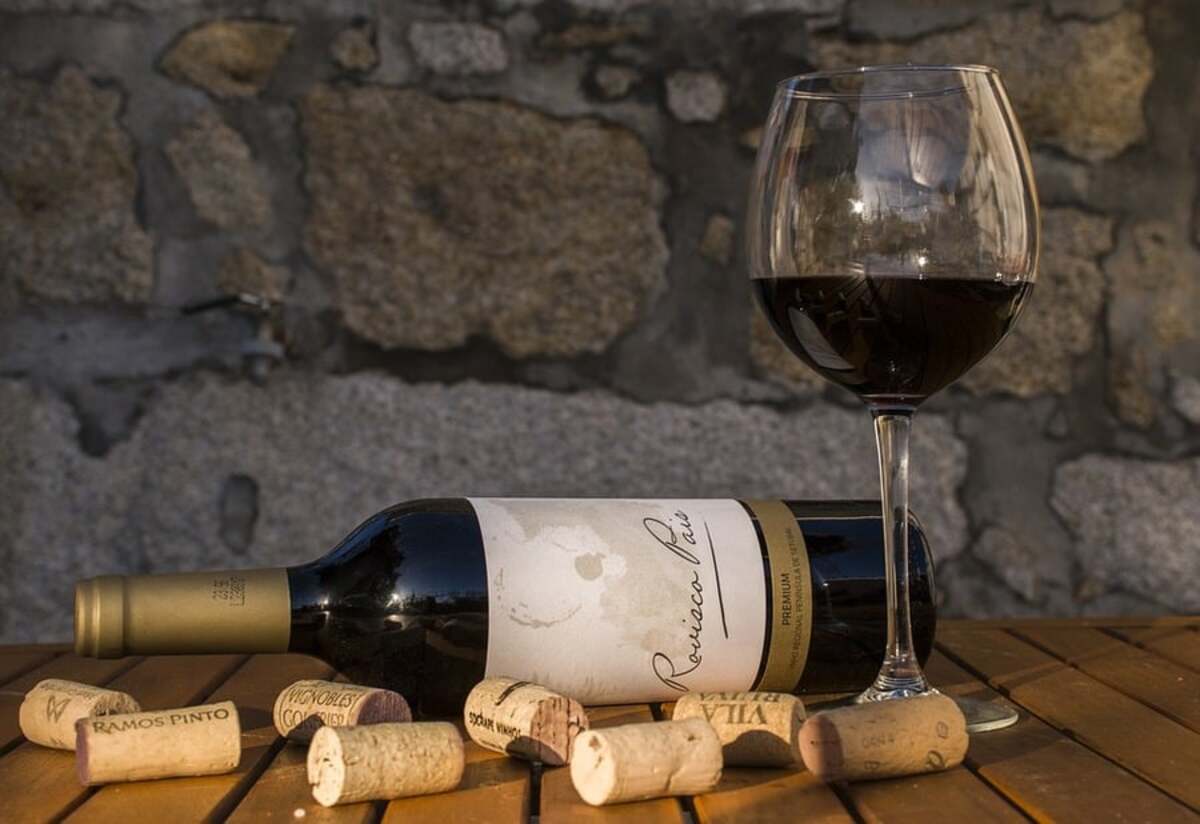
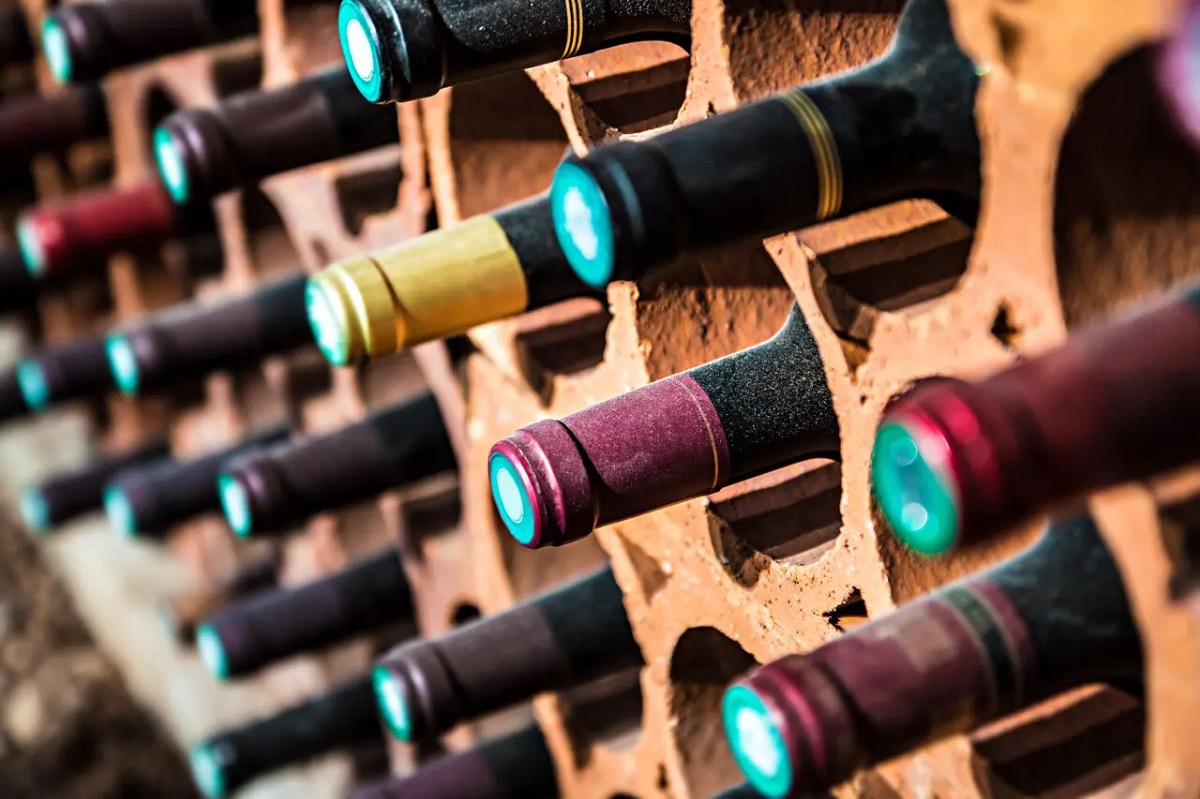
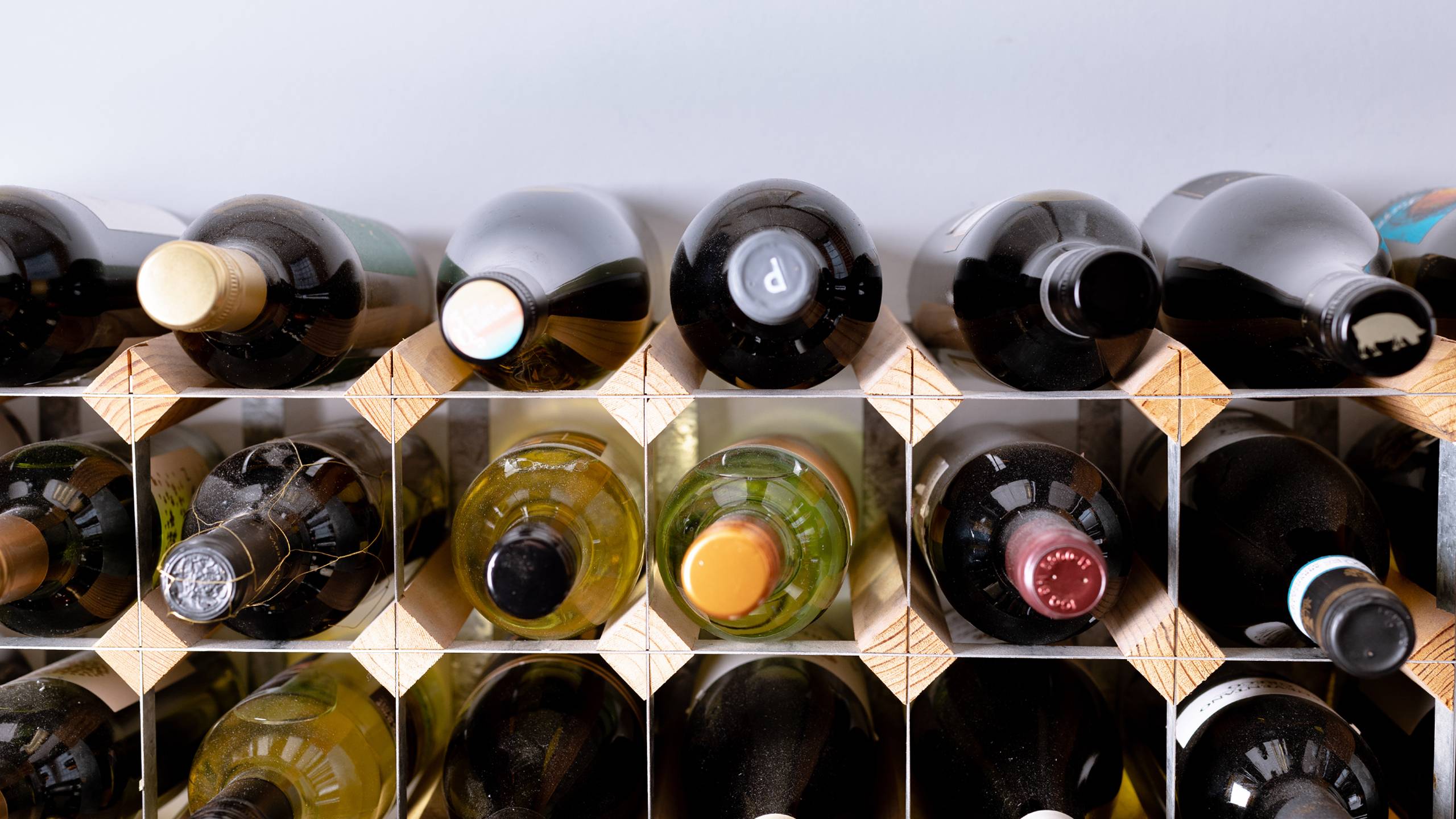
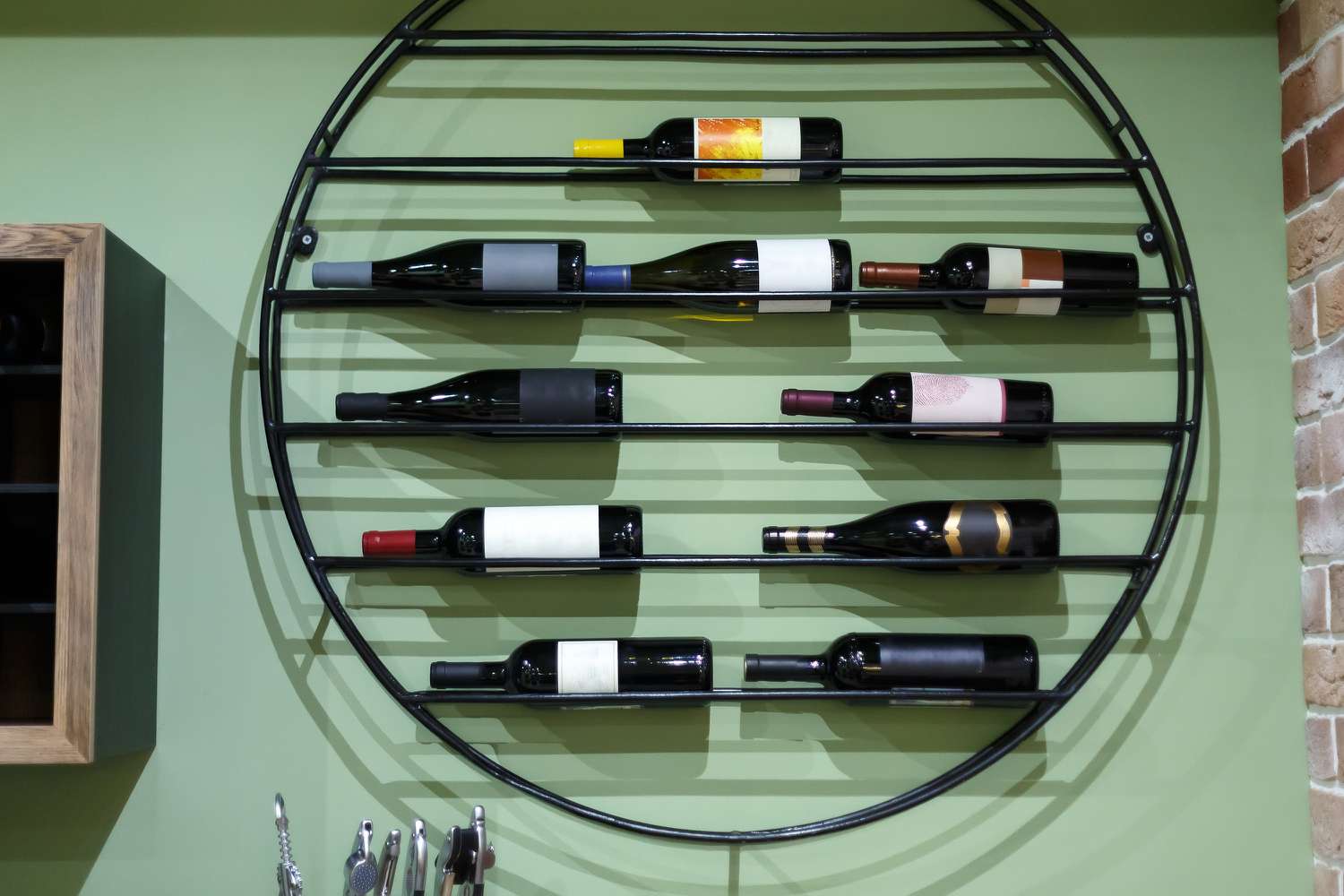


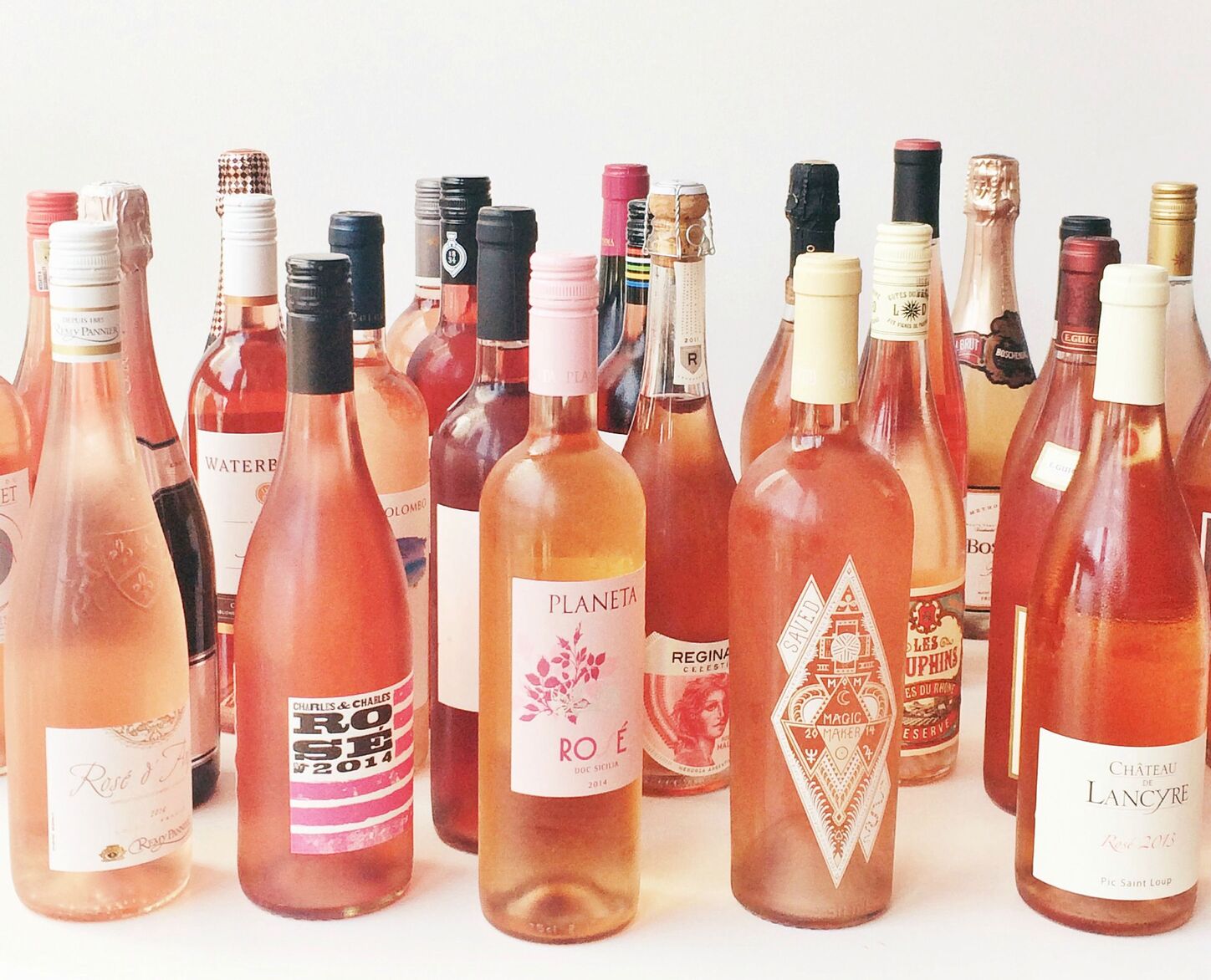
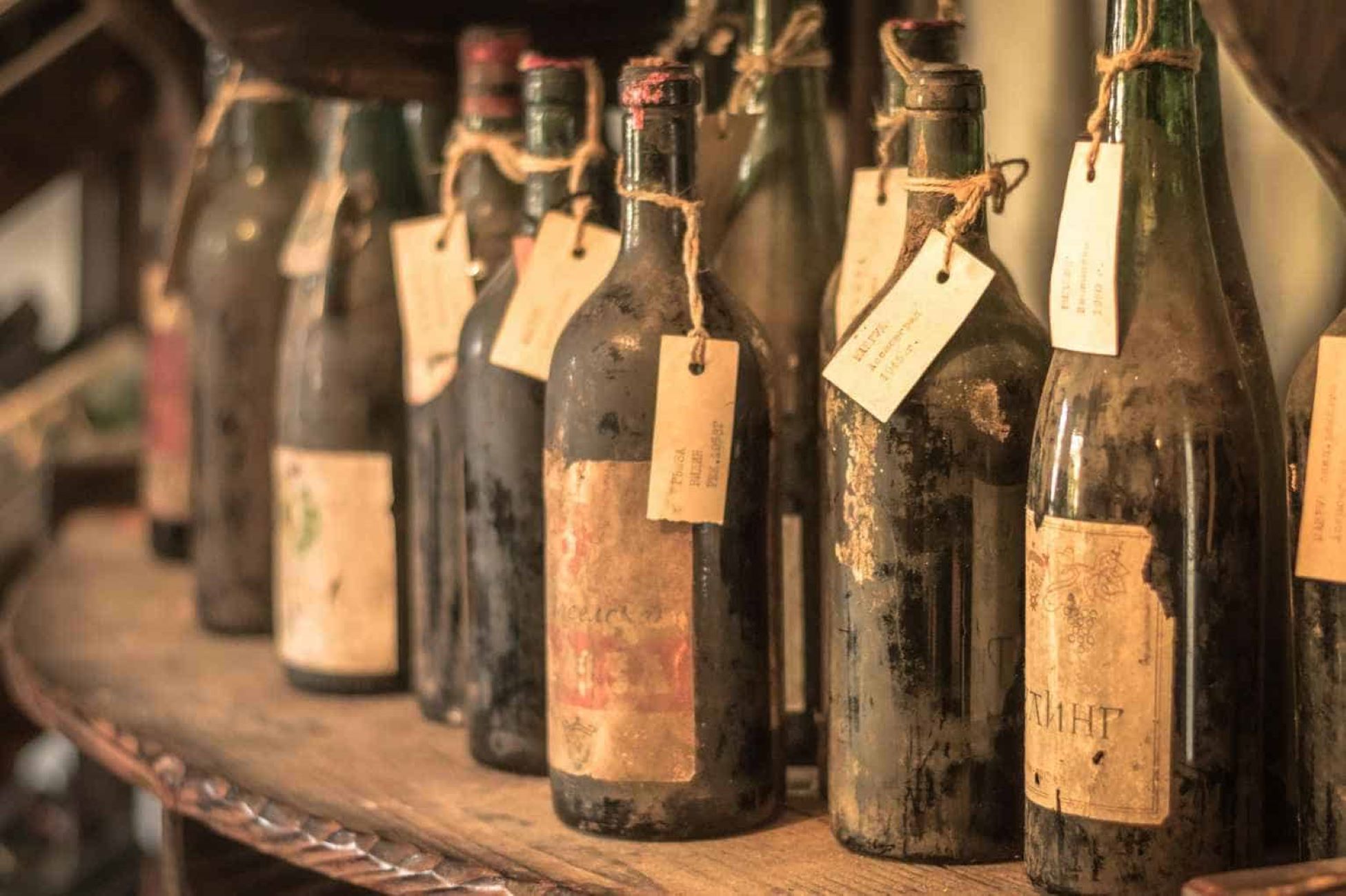
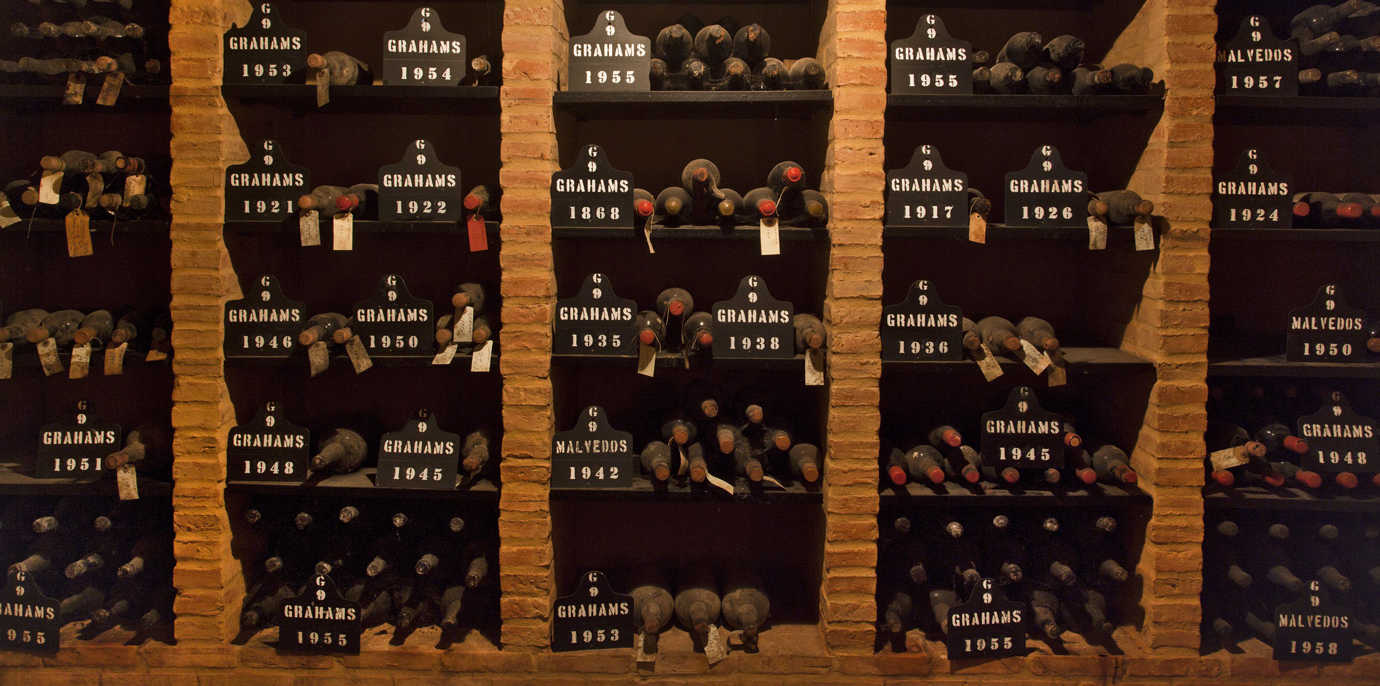

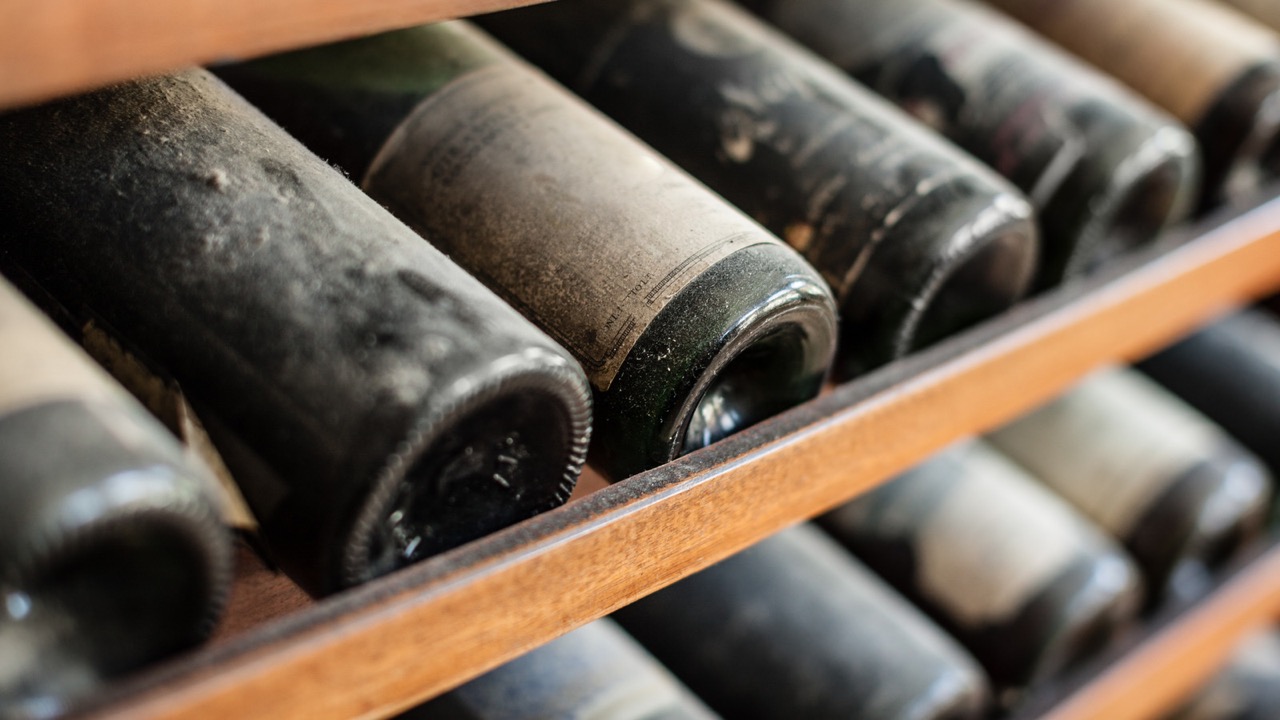



0 thoughts on “How To Store Marsala Wine”